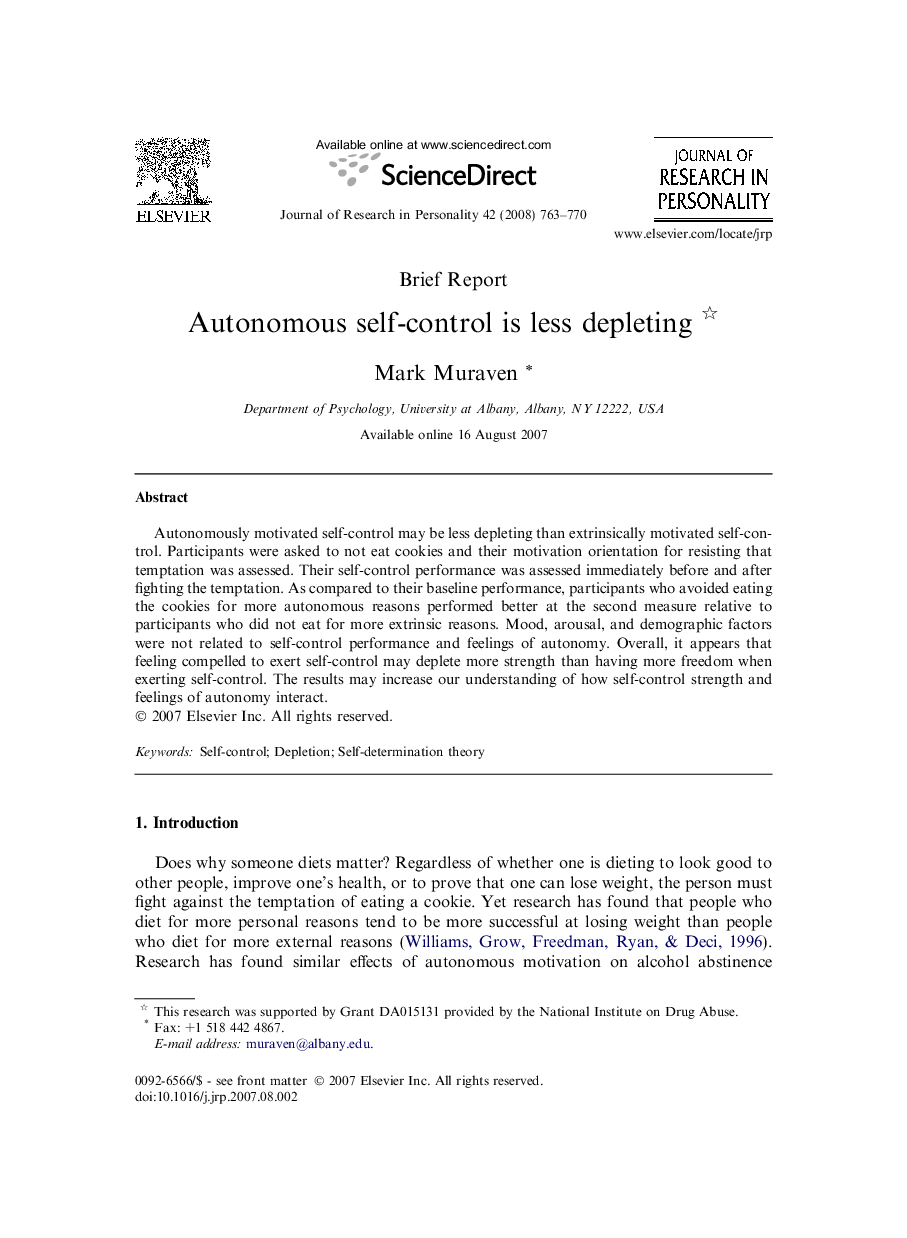| Article ID | Journal | Published Year | Pages | File Type |
|---|---|---|---|---|
| 951739 | Journal of Research in Personality | 2008 | 8 Pages |
Autonomously motivated self-control may be less depleting than extrinsically motivated self-control. Participants were asked to not eat cookies and their motivation orientation for resisting that temptation was assessed. Their self-control performance was assessed immediately before and after fighting the temptation. As compared to their baseline performance, participants who avoided eating the cookies for more autonomous reasons performed better at the second measure relative to participants who did not eat for more extrinsic reasons. Mood, arousal, and demographic factors were not related to self-control performance and feelings of autonomy. Overall, it appears that feeling compelled to exert self-control may deplete more strength than having more freedom when exerting self-control. The results may increase our understanding of how self-control strength and feelings of autonomy interact.
